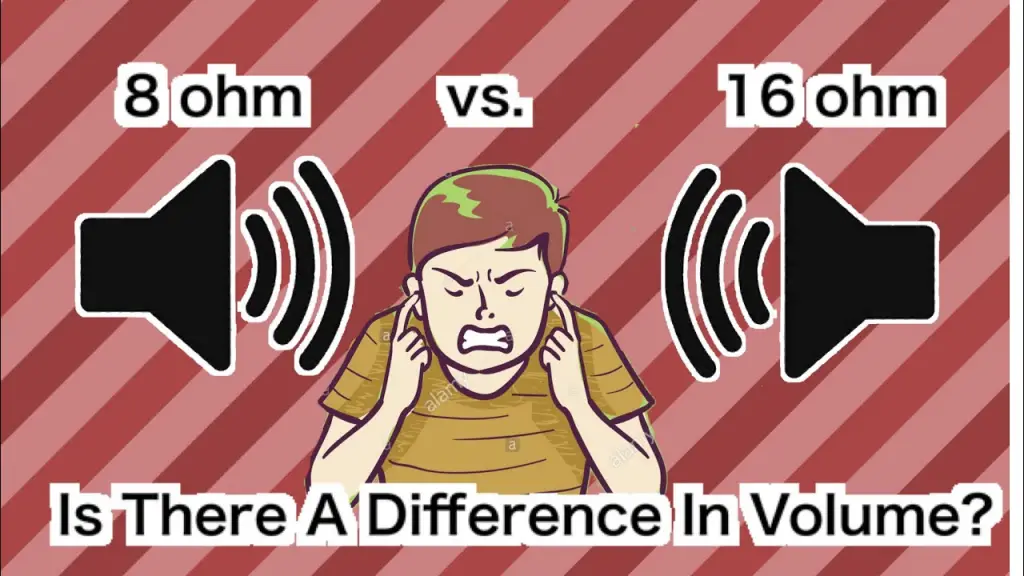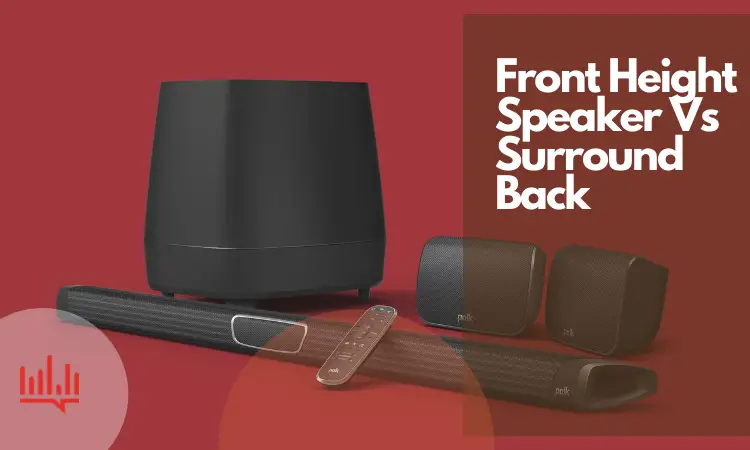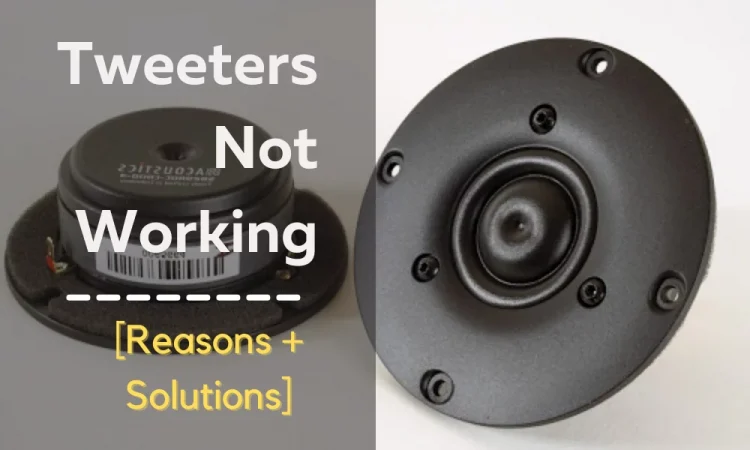When choosing a loudspeaker, there can be too much information.
Not all spec sheet numbers are equally important. However, the impedance rating can be confusing.
You might ask yourself, “Which one is better between an 8 ohm vs 16 ohm speaker?”
Physically, a 16-ohm speaker will have more coil wire than an 8-ohm speaker. Moreover, a 16-ohm speaker sounds more dynamic and wide while drawing double the power output. On the other hand, the 8-ohm speaker sounds a bit heavy.
That’ll be a short summary of the whole thing. We will explain which impedance speaker is best suited for you. Stick with us till the end to find out.
Let’s start.
Pros and Cons
Here are the quick pros and cons of these two speakers-
| 8-ohm Speaker | 16-ohm Speakers | |
| Pros | Better loudness & cleaner sound | Dynamic and harmonic sound |
| Less power draw from amp | Better compatibility | |
Cons | Stronger mids | More sensitive soundstage |
| Less sensitive sound | Almost double power draw |
8-ohm vs 16-ohm Speaker: Quick Comparison
These two speakers can be pretty confusing. People often mix them up. To make sure you don’t do the same, let’s look at this quick info table.
| Aspect | 8 Ohm Speaker | 16 Ohm Speaker |
| Sensitivity | 86 dB/w ± 3 dB | 100 dB/w+ |
| Sound Tone | Deep, Heavy, Muffled | Dynamic, Bright, Accurate |
| Resonate Frequency | 750 Hz± 150 Hz at 1V | 1000± 400 Hz at 1V |
| Compatibility | 8 Ohm Amp | 8 & 16 Ohm Amp |
| Price | Less Pricey | Relatively Expensive |
Now, let’s jump into the main discussion.
8-ohm vs 16-ohm speaker: Detailed Comparison
At times, the sheer volume of information available can make it difficult to choose a speaker. It can get complicated, like choosing between 15 and 12-watt subwoofers.

It’s easy to feel overwhelmed by the sheer quantity of numbers on the spec sheet, but not all of them are created equal. There are a few specifications that are really crucial to know.
This is in order to acquire the speaker that will fulfill your requirements. Look at these as a starting point.
Sensitivity: Is 16 Ohm Speaker Louder than 8 Ohm?
The 16-ohm speakers can reach up to 100+ dB which is more than 8-ohm’s 86/87 dB level.
In this sense, 16-ohm speakers phase out 8-ohm speakers by a large margin. They have better sensitivity and can get quite loud. This adds to the advantage. You can rock a party with them easily.

Winner: The 16-ohm speaker will win this for its higher sensitivity and louder sound.
Sound: What is the Difference Between the Speakers’ Soundtone?
The sound of 16-ohm seems more multidimensional and vibrant than 8-ohm speakers.
For example, a dynamic and different feel can be expected from 16-ohm speakers. This is ideal if you want to listen to pop or jazz music with bright tones. The clarity of the sound will increase too as a result.
Using 8 ohms will result in a fuller, but less precise sound. The sound will be damp and deep. This will feel like a muffled sound. 8-ohm speakers are ideal for a darker, deeper tone.
However, this is highly subjective and also dependent on the amp you’re using.
Winner: We will not call any winner here as the tonal difference is purely subjective and dependent upon the user.
Resonate Frequency: Which One Has the Higher FQ Support?
Frequency-wise, the 16-ohm speakers can go well above 1000 Hz and have an offset of 400Hz. This is 250Hz higher compared to the 750 Hz frequency of the 8-ohm speakers.
Hence, the 16-ohm speakers are more versatile and high-pitched.
Winner: The winner of this segment will be 16-ohm speakers for high-frequency range support.
Amp Compatibility: Does 16-ohm Speaker Offer Better Compatibility?
In this regard, the 16-ohm speakers are more versatile than the 8-ohm speakers. You can pair an 8-ohm speaker with an 8-ohm amplifier only. Pairing with a high-powered amp won’t do any good.
One of the biggest issues for any speaker is compatibility. In most cases, you will hear people run into compatibility problems and don’t get the desired sound quality. This can be as confusing as on the wall or in-wall speakers.

However, you can pair 16-ohm speakers with both 8 and 16-ohm amplifiers. You can also pair 16-ohm speakers with 8-ohm ones. But it will produce lower sound output.
You can pair two 16-ohm speakers to create an 8-ohm equivalent output.
So, be very careful about plugging your speaker with the right amp. Otherwise, you’ll be in deep trouble like this guy-
Winner: The 16 ohms will win this one for its versatile support and compatibility.
Price: Does Lower Impedance Mean Lower Price?
Pricewise, 16-ohm speakers are a bit more expensive than 8-ohm speakers. This price difference is due to the voice coil wire size and the number of turns.
Hence, the price is different. 16-ohm speakers tend to have bigger wires and more turns. It also provides louder sound and covers more wattage. However, there are many affordable 16-ohm guitar speakers as well.
For example, Celestion G10 Greenback Guitar Speaker 16ohm is a powerful contender with a very affordable price tag. Similarly, Eminence Patriot Texas Heat 12″ Guitar Speaker is another great yet cheap option.
So, the price mainly matters if you go into the premium segment.
If you want to go cheap, you can always opt for the 8-ohm speakers. They are cheap and easy to set up.
Then again, there are many similarly priced 8-ohm speakers available too! For instance, Celestion G10 Vintage Guitar Speaker and Celestion Vintage 30 Guitar Speaker. These are one of the most popular guitar speakers you can get right now!
Hence, the price, as complicated as it can be, depends on your choice.
Winner: The 8 ohms will win this for its cheap rate and easy compatibility. However, the price varies depending on the brand and features.
Which One to Choose Between an 8-ohm and 16-ohm Speaker?
The sound quality of an amplifier is maximized when used with speakers that have a higher impedance. This can be higher than or equal to the amplifier.
A higher impedance rating of a speaker means less power is lost in transmission. This frees up more juice for bass and volume (bass). Pick the 16-ohm speakers if you want some more bass and volume.
If your speaker has a low impedance rating, you’ll need an amplifier with a lower voltage output.
Higher impedance speakers, on the other hand, may call for more power than their lower-rated counterparts. As long as the wattages are matched.
Without a proper amplifier, a 16-ohm speaker will distort, sound terrible, and perhaps damage itself (though modern speakers typically provide protection against this). If you are planning to get a 16-ohm speaker, do keep this in mind.
To avoid blowing your cash on the amplifier, it is recommended that you go with 8-ohm speakers.
So, now you know why understanding the speaker impedance is crucial!
Frequently Asked Questions (FAQs)
Are Higher Ohms Better for Speakers?
It’s good, but not always. The impedance determines how well the electric signal (the music) can travel through the speaker. Typically, speakers have an impedance rating of 4, 6, or 8 ohms. However, low-impedance (specifically 4 ohms) speakers can be difficult to drive with some less expensive receivers.
Is It Better to Have High or Low Ohms?
The greater the ohm rating, the better the listening experience. That is contingent upon whether or not the amp being utilized is capable of delivering the necessary power. If you insert headphones with an impedance of 100 ohms, you won’t receive the sound quality.
Can I Mix Speakers With Different Ohms?
The answer is yes. You need to ensure that your speakers sound good. It’s crucial that your AV receiver can handle impedances as low as the lowest ones you use. You can find out what ohm range your receiver can handle by consulting the manual.
Conclusion
That will be all on 8-ohm vs 16-ohm speaker. In terms of power, the primary distinction between these two speaker types is impedance.
When the impedance of a speaker is low, less power is needed to drive it.
Have a great day.


